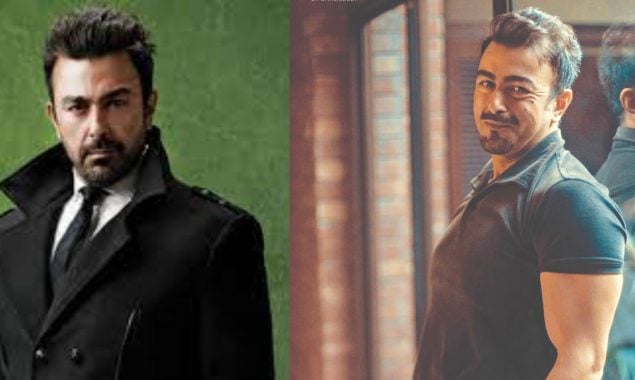“Daughters make a house in your heart and live there till eternity,” says Shaan Shahid
Actor Shaan Shahid, son of renowned Pakistani film industry actress Neelo Begum,...

After the recent announcement by the Federal Minister for Information, Fawad Chaudhry, to install non-Indian Punjabi films in Pakistani cinemas in order to revive the cinema industry, the veteran actor of Pakistan Shaan Shahid showed his disagreement on the decision and took to his Twitter where he advised Prime Minister Imran Khan to “protect the cultural borders of Pakistan.”
“No Indian origin film should be released in Pakistan, as India has banned all Pakistani content including singers, artists, films and music.’ He ended his tweet on ‘respect and equality must be a pivotal part in any trade.”
As the first Indian Punjabi film is supposed to be released this Friday in some Pakistani cinemas, we reached out to the actor to know his concerns on this initiative in detail.
He was of the view that whenever anything is on decline in Pakistan, the government, instead of improving its condition (quality and quantity), starts relying on the import of that product, and the same is being done with the film industry.
The Waar star called it a very sad state of affairs when our government is encouraging the local financiers to import foreign content but not to invest in Pakistani films. Making our cinema dependent on importing films shows that we don’t trust our own material. This practice can never protect the industry in any way as it would make our investors feel reluctant to finance a Pakistani production, making fewer funds available for the local filmmakers, ultimately resulting in compromising the quality and quantity of their work.
He added that instead of encouraging them to invest in importing foreign content, the government should provide amnesty schemes to investors and financiers that allow them to be exempted from several taxes and declarations if they put their money in film productions.
The actor disagreed on the idea that we could run our cinemas on Indian films. Shahid also emphasized the need of patriotic notions in this trade which requires respect and equality. “I am not against working with foreign countries, even with India. But it should be on secure terms, like a two way process. Why can’t they get our Punjabi films for their cinemas if we are ready to import theirs for ours? We have produced many wonderful films in recent years, like Punjab Nahi Jaungi, which can cater their cinemas in Punjab.
He further suggested co-production between the two countries: “If Pakistani actors and experts are willing to work in Indian projects then why can’t we hire them in our productions. For example, the producer or major producer and any or both of the leads could be from Pakistan while we could hire other cast and expertise from various countries including India.”
When asked for a scenario where these films are produced by the expatriate Indians living in UK or Canada, and many Pakistani `film and theatre actors there are also working in them, making these productions technically not-Indian, Shahid was of the view that the production would be deemed as Pakistani or Indian if the major producer and lead cast is from the respective country. In this case, the films which are announced to be imported in the initial stage, shows their origin as Indian. Right now, whether they are being made in India or the UK, they originated from India.
Shahid also I talked about cultural borders which, according to him, were more fragile than ever in this era of fifth generation war, which India had already installed very swiftly. “Are we ready to fight that war?”
He was cautious of this alarming situation and the fact that wars would not be fought with arms but instead through information technology. “The winner would be the one who can strongly promote its narrative through these tools. India has started it already by taking on the digital platforms like Netflix and Amazon in the region.”
Replying to what harm he feels in importing films when Pakistan is getting many other commodities including edible items like tomatoes, the actor stated that if the government was importing tomatoes from India, then it would not affect the cultural narrative of our nation.
He further stated that the media, including cinemas, are responsible for protecting not only the business but also the cultural assets of their country. “Name any country in the region and its cinema whether it is Iran, India, Thailand or even Korea, they protect their cinema first and then import the material to fill in the gaps, but we do it the other way round.”
Besides the economic and cultural aspect of the issue, Shahid is concerned about many other sides, like political factors which are bigger than anything else and how we as a nation should not compromise on them. “It is about patriotism and dignity as a nation. Why are we insisting on buying the products of a country which has barred our actors, singers, and technicians from working in their productions?”
Shaan Shahid has always spoken his truth and takes on social media platforms to raise his concerns. This time too the actor unapologetically took a stand against the instalment of Indian content in the country comparing it to what has been happening with the Pakistani art fraternity across the border.
Catch all the Entertainment News, Breaking News Event and Latest News Updates on The BOL News
Download The BOL News App to get the Daily News Update & Follow us on Google News.